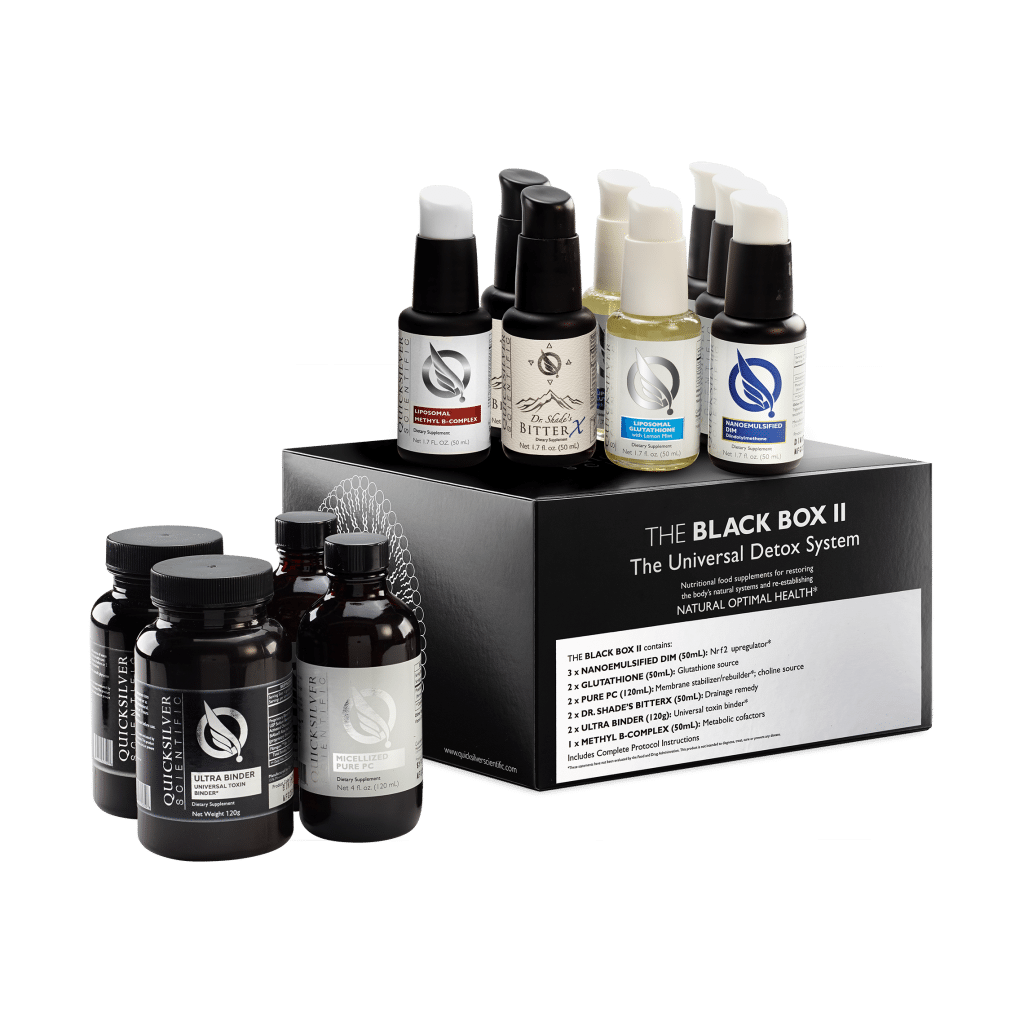Category: Articles
“I feel more like myself”
[expand title="I feel more like myself"] Hi Sandra- Thank YOU for your continued patience & support with me over the years. After the B-shot, Ondamed treatment yesterday & starting back on supplements Saturday, I'm feeling much better (at least 75% better). Given how badly I was feeling, it feels miraculous! :) I feel more like myself today, (with)…
Read More
Black Box Detox II (Detox Program in a Box)
Black Box Detox II, Detox program in a box By Quicksilver Scientific Available at TWIHW Many people begin the year with a detoxification program to get back on track and start the year out right. This year, we are offering the BLACK BOX DETOX II, by Quicksilver Scientific. While it is a…
Read More
The One Next Thing
by Nancy Mehlert, MS Edited by Mila McManus MD Taking specific single steps toward changing eating habits. One of the best New Year’s Resolutions I’ve ever made to myself was to quit trying to change everything about my diet all at once. I was miserably failing at it. Instead I decided to start taking small,…
Read More
Various Diets Explained, Part 1
by Nancy Mehlert, MS and Mila McManus MD This is the first installment of a series that explains various diets, whether on the path to better health, or wanting to losing weight. The Internet can be a good thing. More information is at our fingertips than we could have ever imagined. It can also be…
Read More
Ann Marie
Annmarie Skin Care was founded by healthy lifestyle bloggers Annmarie and Kevin Gianni in 2009. Our goal since then (and will always be) is to provide you with the best natural, wildcrafted and organic skin care, all natural makeup, and natural and organic essential oils. Each product is handcrafted using our proprietary Honest. Wild. Beautiful. process—where we…
Read More
Past, Present, and Future: A Letter from Dr. McManus
Every time I get to this time of the year, three things happen. I look back and reflect on the past year. I look forward and anticipate and plan for the new year. And finally, I express gratitude. That’s what I want to do today. Looking Back: This past October, The Woodlands Institute for Health…
Read More
You Can Think Your Way to Better Health
By Mila McManus MD and Nancy Mehlert, MS Your subconscious mind has one goal. From primitive times to this very day, it focuses on how to survive. Staying alive directs your subconscious mind to exercise caution, err on the safe side, fear the unknown, and avoid danger. All of that worked well when food…
Read More
The Health Benefits of Pumpkins
By Nancy Mehlert, MS Wait! Before you say you don’t like pumpkin, consider trying it again. Here’s why: The fruit of these large, vining plants, so associated with harvest, belong to the Cucurbitaceae, or cucumber family. The two main types are "pepo," dubbed "small" pumpkins and are often carved into Jack-o-lanterns, and "maxima," the giant…
Read More
7-Keto DHEA
One of the most important DHEA metabolites is 7-Keto DHEA (commonly referred to as 7-Keto). Unlike DHEA, 7-Keto does not convert to estrogen and testosterone. This provides increased utility that can be used for a myriad of adrenal and other health benefits without the same level of concern relative to feeding into the sex hormone…
Read More
Take Charge of Your Health
We believe in empowering you to be an active participant in your health journey. With our guidance, simple lifestyle adjustments can yield profound results. Let us be the bridge to a healthier, happier you.
SCHEDULE AN APPOINTMENT